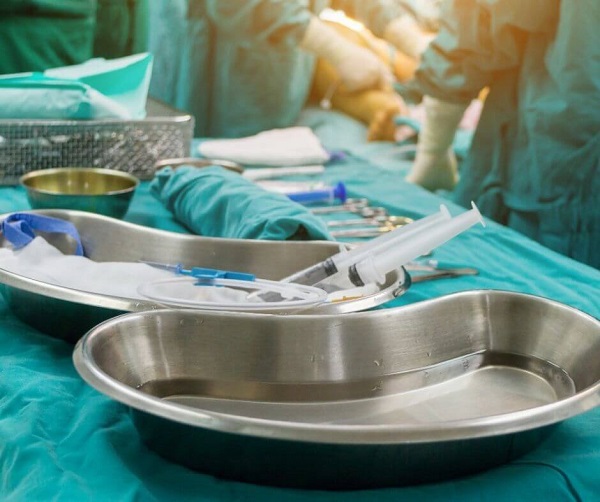Medical advances continue pushing medical components and devices into new technological territories. Not only must medical components comply with industry guidelines and standards, but they must also meet performance and durability requirements in addition to safety standards.
With a variety of metal stamping processes to choose from, metal stamped components and parts play a crucial role in the healthcare and medical industries. From medical instruments to device components, metal stamping offers you a cost-effective way to manufacture precision, high-performance medical instruments and parts.
Metal Stamping Advantages
Having the capacity to manufacture high-volume production runs, metal stamping is well suited for medical parts and component manufacturing. Depending on your medical component design, metal stamping can also accommodate simple designs as well as complex designs that require precision and accuracy. Additional advantages of metal stamping for medical applications include:
- Cost-efficient for high volume production runs
- High-speed manufacturing option
- Uniformity and repeatability
- Quick turnaround times
- Variety of metal stamping techniques
The design and functionality of your medical component will determine which metal stamping process will be suitable for your needs. Small component designs are well-suited for deep drawing metal stamping, while four-slide stamping is ideal for complex geometries.
Metal Stamping for Medical Applications
Due to its versatility and accuracy, metal stamping is useful for a wide range of medical application uses. Common medical parts and components made from metal stamping include the following:
- Surgical instruments
- Medical equipment housings
- Medical device enclosures
- Imaging equipment
- Single-use and reusable devices
- Temperature probes
- Device and equipment fittings
- Wireless components
Considerations for Medical Metal Stamping
Stringent guidelines and industry safety standards make it increasingly important to work with metal stamping manufacturers who understand medical industry nuances and who adhere to strict quality control specifications. Working with ISO 9001 and ISO 13485 certified stamping manufacturers ensures your medical components will meet all safety and industry requirements.
In addition to the metal stamping technique you choose, it is important to select the right material for your medical stamped component. Aluminum, stainless steel, titanium, and zinc are common materials used throughout the medical and healthcare industries. While exotic alloys can be metal stamped, working with an experienced metal stamping manufacturer with superalloy experience becomes increasingly important.
Work with Trusted Precision Medical Metal Stamping Experts
For high-quality, performance-minded medical metal stampings, you can trust Compass & Anvil for your metal stamping needs. We work with industry-leading medical stamping manufacturers who can accommodate high production runs as well as prototypes or low volume runs as well. Whether you need metal stamping or microstamping, we can source the best supplier for your medical and healthcare equipment needs. Contact us to discuss your medical metal stamping project today.



